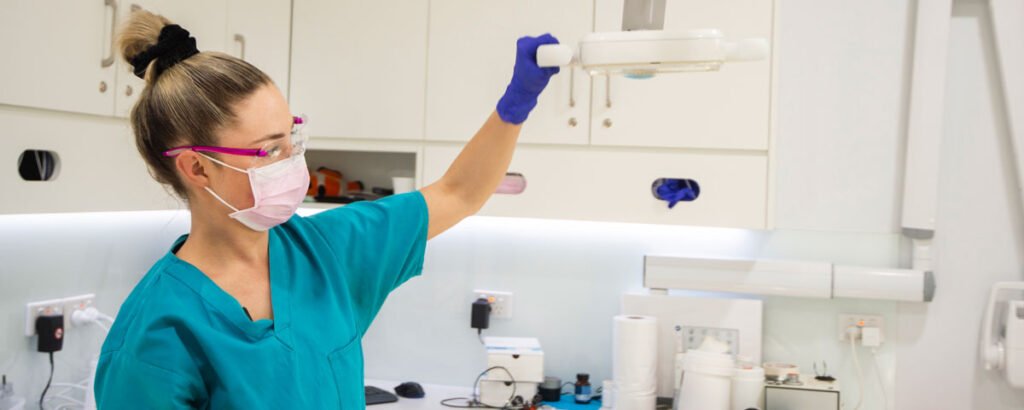Everything to know about Dental Assistant School
Working as a dental assistant can be a great way to make a difference in people’s lives while earning a good salary. After all, most people don’t enjoy going to the dentist, but if you can be there to put them at ease from the start of their appointment to the end of it, they’ll certainly appreciate you.
As a dental assistant, you’ll be responsible for completing a variety of tasks, from giving patients important instructions to helping the dentist with oral health procedures and treatments. Plus, every day is unique because you’ll interact with new patients all the time.
Getting the best education can help fully prepare you for this role. But what are some of the things you should know before enrolling in a dental assistant program? Read on to learn about dental assistant school, how long it takes to complete, and more.
The basics of dental assistant school
Begin by looking into the dental assistant education requirements for your state. While one state might require that you graduate from an accredited dental assistant school, another might not, so it’s important to be aware of these rules before you start job hunting.
When you’re ready to pursue this education, you can check the programs available at vocational or technical schools, community colleges, universities, and dental schools. These might give you the opportunity to work toward a diploma, certificate, or associate’s degree to prove you have what it takes to work as a dental assistant.
Note: After you’ve completed your education, you might also need to get a dental assistant certification or license to be eligible for employment, depending on what your state requires.
How long are dental assistant programs?
The length of time you’ll need to be in school will depend on the type of program you enroll in. While an associate’s degree may take around two years to complete, if you opt to get a certificate or diploma, it might take less than a year to get it all done.
Factors like whether you’re attending school on a full-time or part-time basis, whether you’re taking courses online, and if you’re following an accelerated program can also play a role in how long it will take for you to meet all of the requirements for graduation.
Dental assistant school cost
The total cost of your education will be based on multiple factors, including the school you want to attend and the type of program (i.e. certificate vs. degree) that you aim to complete. While one program might cost a few thousand dollars, another might total more than $10,000.
In addition to tuition, there are other costs to keep in mind, such as the price of books and supplies, as well as the amount of money you’ll need to spend commuting or housing. It can certainly add up, but you might qualify for financial aid.
What does it take to get into a dental assistant program?
Although different schools might have varying requirements for admission, you can generally expect that you’ll need to have a high school diploma or GED to be able to enroll in a dental assistant program. And some schools might ask to see the list of classes you took in high school to confirm that you learned subjects like chemistry or biology.
In addition to filling out an application, you might be asked to take an entrance exam. A background check or a submission of immunization records might also be required.
Classes you might take in dental assistant school
When working toward a dental assistant certificate or degree, you’ll need to take a range of courses that may include some hands-on training.
How hard is dental assistant school? Well, some classes will be easier than others, and every student is different, so what one person finds challenging, another might find easy.
Typically, dental assistant classes might be focused on topics like the following:
Dental office administration and management
- Dental software
- Managing records
Oral health and anatomy
- Dental diseases and emergencies
- Periodontics
- Causes and prevention of dental problems
- Treatments for oral health issues
- Anatomy and physiology
Dental assisting
- Caring for patients and assisting chair-side
- Emergency procedures
- Dental materials and instruments
- Radiography
- Sedation
- Infection control
- Lab procedures
If you want to go into a specialty area, such as pediatric dentistry or endodontics, you may need to take additional classes.
Remember, too, that you can complete an externship to get some experience in the real world before graduation.
IBMC has a dental assistant program that might be perfect for you
If you’re interested in becoming a dental assistant and would like to learn more about dental assistant careers, IBMC can help.
We offer a dental assisting diploma that you can complete in just 12 months, and our training will provide you with the valuable administrative and clinical skills you need to work confidently in this field.
Contact us today to learn more about what we offer and how you can get started.


